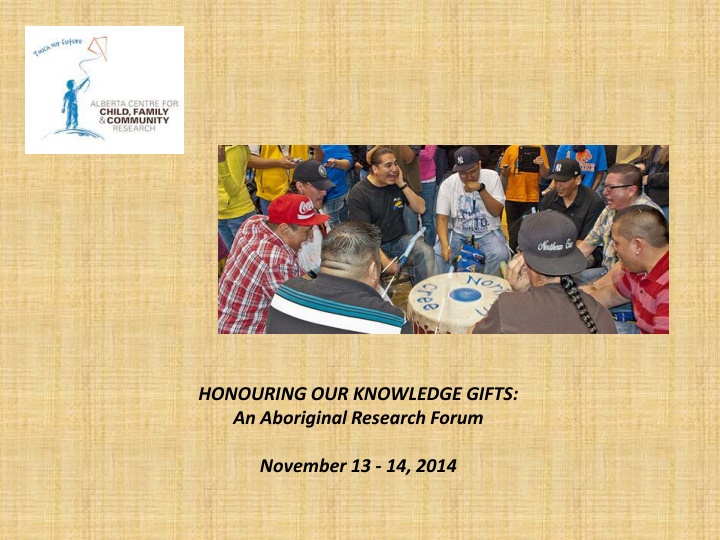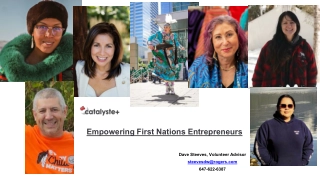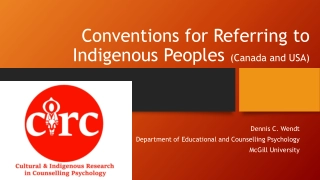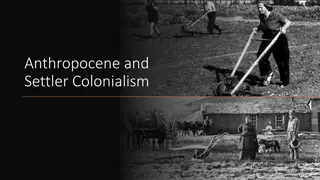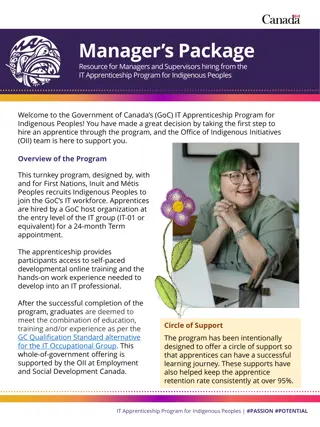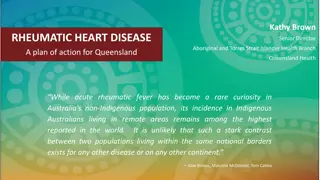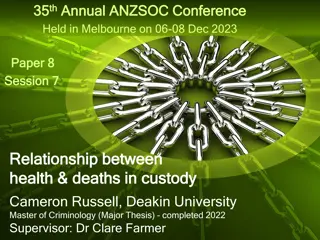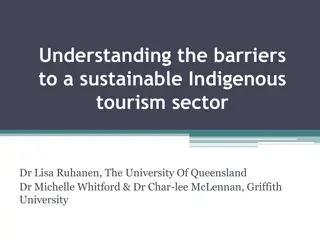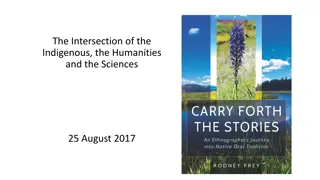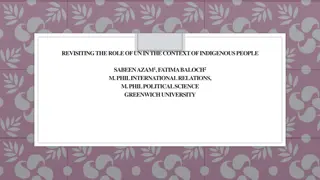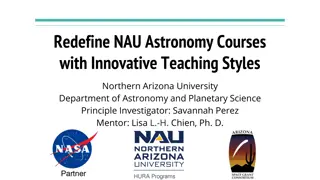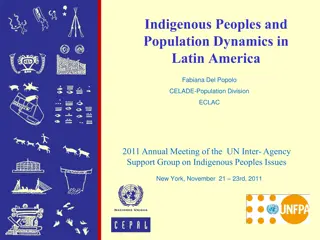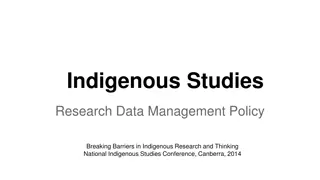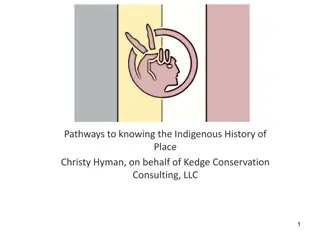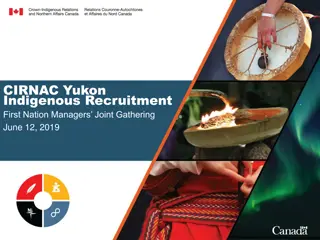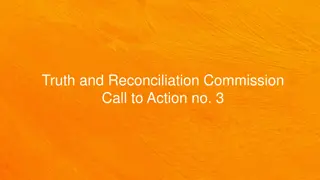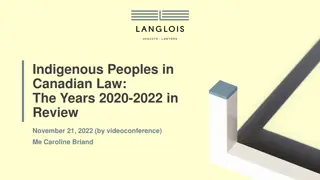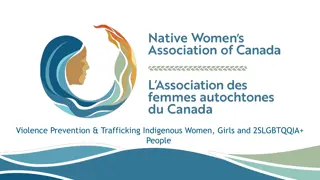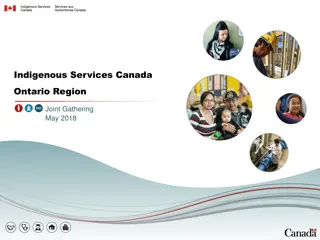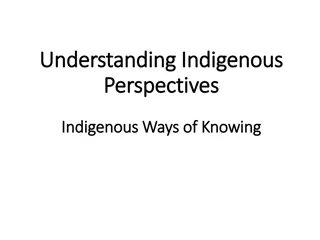Indigenous Research Forum: Towards Deeper Understanding
This research forum delves into the intricate Indigenous experiences of urban homelessness, focusing on methodologies, storytelling, and the impact of colonization. It explores factors influencing mobility, community ties, and mental health issues within Indigenous communities.
Download Presentation

Please find below an Image/Link to download the presentation.
The content on the website is provided AS IS for your information and personal use only. It may not be sold, licensed, or shared on other websites without obtaining consent from the author.If you encounter any issues during the download, it is possible that the publisher has removed the file from their server.
You are allowed to download the files provided on this website for personal or commercial use, subject to the condition that they are used lawfully. All files are the property of their respective owners.
The content on the website is provided AS IS for your information and personal use only. It may not be sold, licensed, or shared on other websites without obtaining consent from the author.
E N D
Presentation Transcript
HONOURING OUR KNOWLEDGE GIFTS: An Aboriginal Research Forum November 13 - 14, 2014
Towards a Deeper Understanding of the Indigenous Experience of Urban Homelessness
Indigenous Research Methodology Ceremony Circle Process Relational Accountability Natural Laws/Seven Teachings Story Telling and the Meaning of Stories
The Meaning of Home Tipi Teachings The Creation Story of Indigenous Homelessness
Stories from the east: The Physical Realm of Indigenous Homelessness Stories from the south: The Mental Realm of Indigenous Homelessness Stories from the west: The Emotional Realm of Indigenous Homelessness Stories from the north: The Spiritual Realm of Indigenous Homelessness
Factors that Impact Homelessness and Mobility Factors that motivate leaving home communities. Factors that attract movement to urban centers. Factors that contribute to leaving urban centers. Factors that motivate return to home community. Systemic factors that contribute to home Urban community/urban mobility. Community
Stories from the Storytellers Urban Social Control Mortality Mortality and Ceremony Community-based Resources Identity
Homelessness AS Colonization 1. A deep understanding of the process and impacts of colonization, 2. What it means to be de-colonized, 3. A deep understanding of loss and grief, 4. A deep understanding of trauma and healing from trauma, 5. An awareness of language and how it creates reality,
Colonization AS Homelessness 6. A lived spirituality and an understanding of the meaning and role of ceremony, 7. A deep understanding of omanitew, Relational Accountability and kinship, 8. An understanding of mental health and addictions, 9. An understanding that colonization is homelessness.
Understanding Indigenous Homelessness in Canada Thank You!
Indigenous Program Indicators 1. Indigenous Identity 2. Social Inclusion 3. Ceremony 4. Healing 5. Traditional Kinship Relations
Cultural Safety and Cultural Programming Cultural Role Modeling/Mentoring Historical Knowledge Sense of Belonging and Feeling Supported Personal Advocacy and Sense of Empowerment Traditional Family Structure and Values Community-based Parenting Understanding Traditional Parenting Teachings Traditional Healing Practices Trans-generational Aspects of Healing The Role and Meaning of Ceremony Understanding Ceremonial Teachings Identity Social Inclusion Kinship/Family Healing Ceremony
Minimal Involvement or Understanding (1) Survey One: Cultural Safety and Cultural Programming Limited Involvement or Understanding (2) Moderate Involvement or Understanding (3) Extensive Involvement or Understanding (4) 1. I understand the importance of Aboriginal language. Some examples are: Language classes, hearing or speaking with Elders or cultural people who speak their language, or through storytelling in an Aboriginal language. 1. I have been involved in traditional cultural social events and ceremonies. Some examples are: Pow Wow, smudging, pipe ceremonies, sweat lodge ceremonies, and Inuit or M tis ceremonies. 1. I understand the traditional Aboriginal protocols to use when approaching Elders or cultural people. Some examples are: asking Elders for guidance or healing, offerings and Circle Process. 1. I understand my traditional Aboriginal teachings. Some examples are: morals and values, caring for sacred items, sacred self- care, sacred teachings, relational accountability and creation stories. 1. I understand and can rely on cultural teachings and practices to make choices if I am faced with a problem, or feel troubled. 1. I understand traditional kinship concepts and practices. Some examples are: kinship mapping (family history) traditional parenting practices, traditional knowledge of child and family teachings, extended family relational accountability.
Minimal Involvement or Understanding (1) Limited Involvement or Understanding (2) Moderate Involvement or Understanding (3) Extensive Involvement or Understanding (4) Survey One: Cultural Safety and Cultural Programming 1. I understand the importance of Aboriginal language. Some examples are: Language classes, hearing or speaking with Elders or cultural people who speak their language, or through storytelling in an Aboriginal language.
